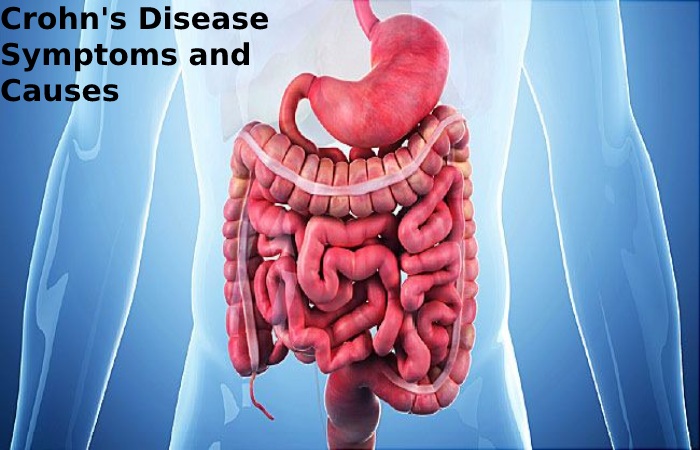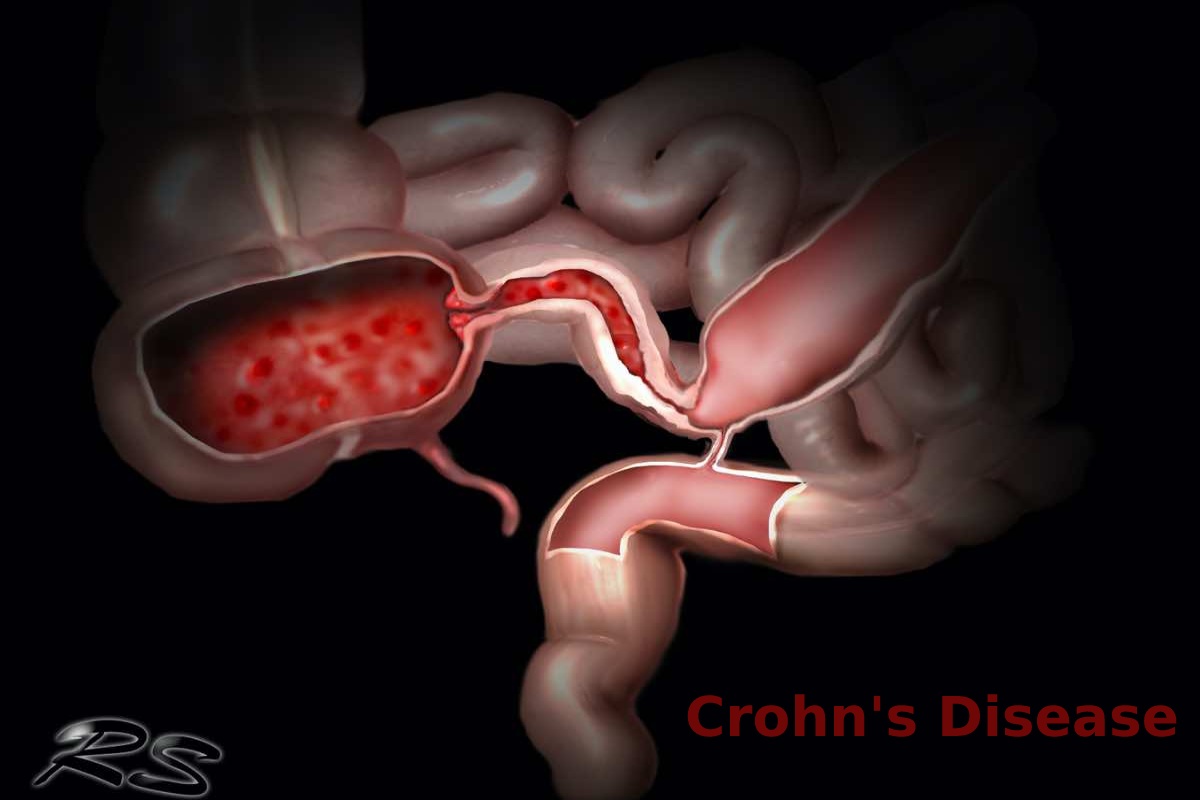Crohn’s Disease – A form of inflammatory bowel sickness (IBD), Crohn’s disease reasons your digestive tract to come to be swollen and indignant. If you have Crohn’s, you might experience signs and symptoms like abdominal pain, diarrhea, weight loss, and rectal bleeding. It is a life-long situation that can’t cure. However, the remedies for Crohn’s disorder usually control your symptoms and let you live an active life.
Table of Contents
What is Crohn’s Disease?
Crohn’s Ailment, also referred to as local enteritis or ileitis, is a lifelong inflammatory bowel disease (IBD). The condition inflames and irritates the digestive tract — especially the small and big intestines. Crohn’s disease can motive diarrhea and stomach cramps, and it’s common to experience periodic disease flare-ups.
Crohn’s Ailment gets its name from American gastroenterologist Dr. Burrill Crohn (1884-1983). He turned into one of the first physicians to describe the illness in 1932. Ulcerative colitis is some other generally diagnosed IBD.
How common is Crohn’s Disease?
Half of one million Americans have Crohn’s Ailment, encompassing men, women, and also youngsters.
Who may Get Crohn’s Ailment?
Crohn’s Ailment typically seems in more youthful people – regularly in their past due young adults, 20s or early 30s. However, this situation can occur at any age, and it’s equally common in ladies and men; Crohn’s disorder can also see in young youngsters.
If you’re a cigarette smoker, your danger of Crohn’s disease might be more severe than non-people who smoke.
What are the Types of Crohn’s Disease?
Crohn’s Ailment can Affect Exceptional Sections of the Digestive Tract.
Types of Crohn’s Disorder Consist of:
- Ileocolitis: Inflammation happens within the small gut and part of the large intestine or colon. Ileocolitis is the most common method of Crohn’s disorder.
- Ileitis: Swelling and irritation increase in the small gut (ileum).
- Gastroduodenal: Inflammation and inflammation affect the stomach and the top of the small gut (the duodenum).
- Jejunoileitis: Patchy regions of infection expand in the top 1/2 of the small intestine (referred to as the jejunum).
Symptoms and Causes

What Causes Crohn’s Disorder?
There’s no regarded purpose of Crohn’s disease. Certain factors may additionally increase your danger of growing the condition, which includes:
- Autoimmune disease: Bacteria within the digestive tract may also reason the body’s immune system to attack your healthy cells.
- Genes: Inflammatory bowel ailment (IBD) often runs in families. If you have a determined sibling or another family member with Crohn’s, you may be at an increased threat of additionally having it. Numerous particular mutations (changes) in your genes can predispose humans to develop Crohn’s sickness.
- Smoking: Cigarette smoking ought to as a whole lot as double your danger of Crohn’s disease.
What are the Signs and Symptoms of Crohn’s Disease?
People with Crohn’s disease can reveal periods of severe signs (flare-ups) observed using periods of no or very slight symptoms (remission). Remission can ultimate weeks or maybe years. There’s no way to predict while flare-will show up.
If you have got Crohn’s sickness, signs you may have can include:
- Abdominal Ache.
- Chronic Diarrhea.
- A Feeling of Fullness.
- Also, Fever
- A Lack of your Appetite.
- Weight Loss.
- Abnormal Skin Tags (Typically in your Buttocks).
- Anal Fissures.
- Anal Fistulas.
- Rectal Bleeding.
Diagnosis and Tests
How is Crohn’s Ailment Recognized?
Most people with Crohn’s first see a healthcare provider because of ongoing diarrhea, stomach cramping, or unexplained weight loss. If you have got an infant who has been experiencing the symptoms of Crohn’s disorder, reach out to your pediatrician.
To Locate the Motive of your Signs and Symptoms, your Healthcare Company might also Order One or Greater of these Assessments:
- Blood Test: A blood check checks for high white blood cells, implying inflammation or infection. The test also tests for low crimson blood mobile be counted, or anemia. Approximately one in three humans with Crohn’s sickness have anemia.
- Stool Check: This takes a look at appears at a sample of your stool to check for microorganisms or parasites. It can rule out infections that reason continual diarrhea.
- Colonoscopy: During a colonoscopy, your health practitioner makes use of an endoscope (thin tube with an attached mild and digicam) to study the inside of your colon. Your health practitioner may take a tissue sample (biopsy) from the colon to check for symptoms of inflammation.
- Computed Tomography (CT) Test: A CT test creates snapshots of the digestive tract, and also it tells your healthcare company how intense the intestinal infection is.
- Upper Gastrointestinal (GI) Endoscopy: Your health practitioner threads a long, thin tube referred to as an endoscope via your mouth and also into your throat. A connected digicam allows your health practitioner to see the interior. During an upper endoscopy, your medical doctor might also take tissue samples.
- Upper Gastrointestinal (GI) Exam: X-ray pictures used all through a higher GI exam allow your health practitioner to observe as a swallowed barium liquid movements through your digestive tract.
Management and Treatment
How is Crohn’s Disorder Managed or Treated?
Treatment for Crohn’s disorder varies, relying on what’s inflicting your symptoms and how excessive they may be for you. In kids, the remedy intends to set off remission (the time among symptom flare-ups), keep remission, and also control any complications of Crohn’s Ailment over time.
Your Healthcare Company may also Advise One or More of these Remedies for Crohn’s Sickness:
- Antibiotics: Antibiotics can prevent or treat infections. Severe infections can cause abscesses (wallet of pus). Or they can cause fistulas (openings or tunnels that join two organs that don’t typically join).
- Antidiarrheal Medication: Prescription medicinal drugs like loperamide (Imodium A-D®) can forestall severe diarrhea.
- Biologics: These medications include monoclonal antibodies to suppress the immune response.
- Bowel Rest: To supply your intestines a chance to heal, your company may also propose going without meals or drinking for several days or longer. To get the nutrition you want, you could get hold of intravenous (parenteral) vitamins. Only drink a prescribed liquid or have a feeding tube for the duration of this time.
- Corticosteroids: Cortisone, prednisone and different corticosteroids ease irritation through autoimmune sickness.
- Immunomodulators: These calm pills infection utilizing suppress an overactive immune machine. They consist of azathioprine and also cyclosporine.
- Surgery: Surgery received’t treatment for Crohn’s Ailment, but it could deal with complications. You may want surgery to correct intestinal perforations (holes), blockages, or bleeding.
Prevention
How can I Save you Crohn’s Ailment?
There’s no manner to prevent Crohn’s sickness. These healthful lifestyle adjustments can ease symptoms and reduce flare-ups:
- Firstly, Stop Smoking.
- Eat a Healthful, Low-Fat Eating Regimen.
- Also, Exercise Regularly.
- Manage Pressure.

